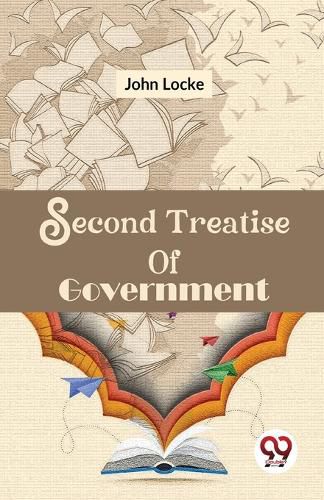Readings Newsletter
Become a Readings Member to make your shopping experience even easier.
Sign in or sign up for free!
You’re not far away from qualifying for FREE standard shipping within Australia
You’ve qualified for FREE standard shipping within Australia
The cart is loading…






This title is printed to order. This book may have been self-published. If so, we cannot guarantee the quality of the content. In the main most books will have gone through the editing process however some may not. We therefore suggest that you be aware of this before ordering this book. If in doubt check either the author or publisher’s details as we are unable to accept any returns unless they are faulty. Please contact us if you have any questions.
The Second Treatise of Government is a political treatise written by English philosopher John Locke. It was published in 1689 and is considered one of the most influential works of political philosophy in the Western world. The treatise begins with the premise that all humans are equal and have natural rights to life, liberty, and property. Locke argues that these rights are fundamental and that they cannot be taken away by any legitimate government. He goes on to state that the purpose of government is to protect these rights and that any government that fails to do so can be overthrown by the people. Locke's treatise is also notable for its theory of property. He argues that individuals have the right to acquire property through their own labor and that this property should be protected by the government. He further states that the accumulation of property is beneficial to society, as it encourages individuals to work hard and be productive. The Second Treatise of Government was influential in the development of democratic theory and the formation of the United States. It helped to establish the idea of natural rights and popular sovereignty, and it influenced the writing of the Declaration of Independence and the U.S. Constitution. Overall, the Second Treatise of Government is a powerful argument for individual liberty and limited government, and it remains an important work in the history of political philosophy.
$9.00 standard shipping within Australia
FREE standard shipping within Australia for orders over $100.00
Express & International shipping calculated at checkout
This title is printed to order. This book may have been self-published. If so, we cannot guarantee the quality of the content. In the main most books will have gone through the editing process however some may not. We therefore suggest that you be aware of this before ordering this book. If in doubt check either the author or publisher’s details as we are unable to accept any returns unless they are faulty. Please contact us if you have any questions.
The Second Treatise of Government is a political treatise written by English philosopher John Locke. It was published in 1689 and is considered one of the most influential works of political philosophy in the Western world. The treatise begins with the premise that all humans are equal and have natural rights to life, liberty, and property. Locke argues that these rights are fundamental and that they cannot be taken away by any legitimate government. He goes on to state that the purpose of government is to protect these rights and that any government that fails to do so can be overthrown by the people. Locke's treatise is also notable for its theory of property. He argues that individuals have the right to acquire property through their own labor and that this property should be protected by the government. He further states that the accumulation of property is beneficial to society, as it encourages individuals to work hard and be productive. The Second Treatise of Government was influential in the development of democratic theory and the formation of the United States. It helped to establish the idea of natural rights and popular sovereignty, and it influenced the writing of the Declaration of Independence and the U.S. Constitution. Overall, the Second Treatise of Government is a powerful argument for individual liberty and limited government, and it remains an important work in the history of political philosophy.